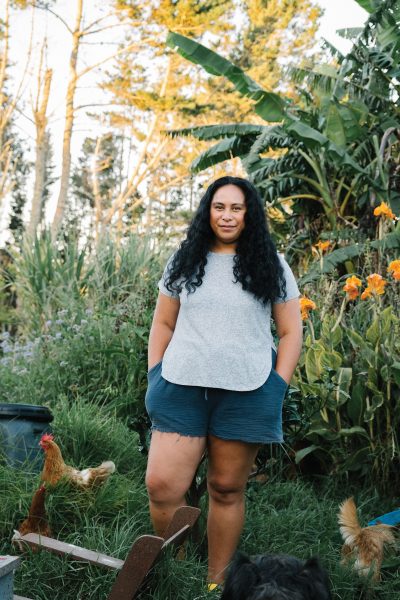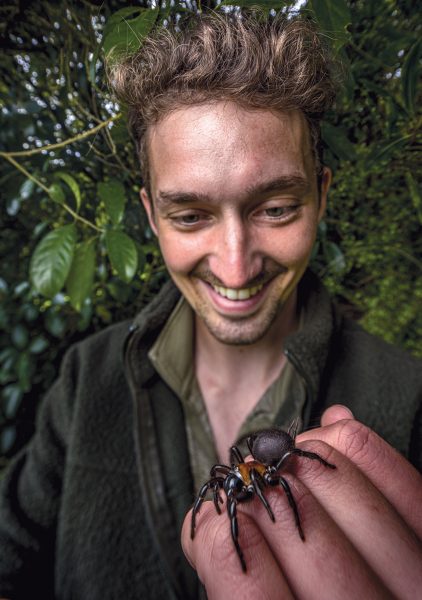Cruise control
Under the mellow surface, there remains a flinty core to canoeist Ian Ferguson—“Ferg”—the nation’s most successful Olympian.

No New Zealander has competed at more Games or bagged as many medals. Now, at 58, and with a haul of gold to make a Viking weep, he could be excused for easing off on the accelerator.
He is, after a fashion. Gone are the adrenalin-fed bursts of power and biting paddle strokes that first made an impression 30 years ago in Moscow, and later stunned the world in Los Angeles (1984), then Seoul (1988). His demolition job at the Los Angeles Olympics in particular—solo in the K1 500 metres, with team-mate Paul MacDonald in the K2 500 metres and then, the next day, in the K4 1000 metres was the stuff of legend.
These days, Ferg’s eyes are most apt to brighten at talk of fish tallies. Eight snapper over 20 pounds in the past two years from—what else—a fishing kayak, and often from the waters near his bach at Sandy Bay on Northland’s Tutukaka coast. Ferg, who admits that “fishing is my real sport now”, also works rivers and lakes with the fly.
A much-medalled Ironman from way back and a champion surf lifesaver who, in the words of one chronicler, took the national title “almost at will”, he nevertheless acknowledges his limits on the water.
“Last weekend, I just didn’t go out. The waves up at the bay were as high as this room. Massive.”
It would be wrong, however, to suggest that the hard years of competition have left no mark. Athlete has merely segued into coach. Early most mornings, Ferg can be found down on Auckland’s Lake Pupuke honing his top-ranking men’s squad for the 2012 London Olympics. They all hail from what the research community would call a “centre of excellence”, the North Shore Canoe Club. In 2009, the club supplied New Zealand’s entire world championships contingent. It has also sent many paddlers, including Ben Fouhy, Paul MacDonald and Ferg’s son, Steven, to the Olympics.
Ferg, who is now the sport’s national coach, managed to lure his old mate MacDonald back to help out. For a time it was voluntary. Now, a little funding has come his way, and the numbers continue to grow. It is a world removed from the early days when perhaps 20 or 30 paddlers fronted up for national competitions.
A few months back, Ferg hit the headlines with a supposed jab at the New Zealand team’s poor showing at the Winter Olympics in Vancouver. “Oh, that,” he says, crinkling his nose. “Misunderstood.” The comments, he says, were aimed chiefly at teams with little ability that made a mockery of serious athletes. Ferg had been a spectator at the Millennium Games in Sydney when the notorious Eric the Eel (barely) did his thing. With New Zealand kayakers needing to be among the world’s best merely to make selection, the travesty had hit a nerve.
When New Zealand Geographic caught up with him, he had just returned from international regattas in France, Slovenia and Hungary.
“I do it,” he says, “because I want to see it succeed. It is a complex sport to train for. I took years, paying my own way to go overseas and find out what was happening. I trained with other teams, stole their ideas and added my own. I don’t want to just throw all that away.”
Ferg likes to point out that in the 1970s, his “overseas kayaking mission” got in the way of putting a new accounting degree to use. His real fling with the commercial world came much later, when he hit on a way to combine pleasure and day job by setting up a marine sports business on Auckland’s waterfront, later expanding to Wellington.
There he tinkered with boat design and, assisted by sons Steven and Alan—also an accomplished athlete—he became something of a kayak evangelist. New Zealand was made for kayaking, he says, and the tough plastic boats that soon became available were made for the Kiwi lifestyle.
“I’m one hundred per cent sure that we have more kayaks than anywhere else in the world,” says Ferg.
His latest venture—an international white-water canoeing stadium with a 400m-long course to be built in Manukau City—has stalled for now, but he is confident that people will warm to the novel idea of “bringing down-country rivers to the city”.
There is, too, he says, a delightful appropriateness in electricity from dammed natural rivers being used to power the pumps that would create his artificial ones. A smile flickers. “That works quite well.”
A smile flickers. “That works quite well.”

















